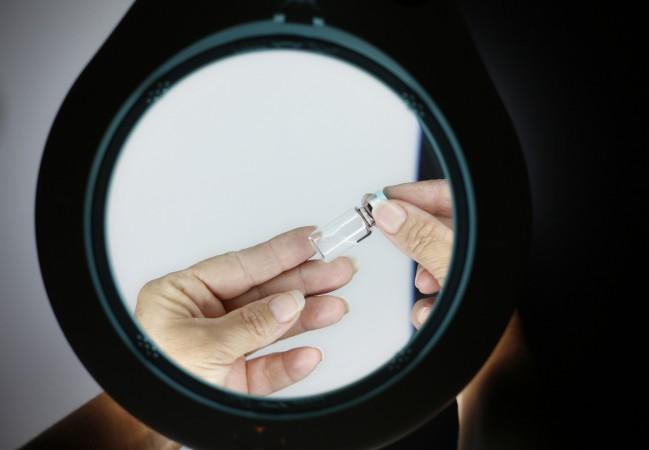
Chandigarh-based researchers from the Institute of Microbial Technology (IMTECH) have found an indigenous technology to generate protein-based drugs like hepatitis B vaccine, insulin and streptokinase (clot buster). These medicines are likely to be three to four times cheaper than the present costs of the medicines.
India usually depends on patented and imported technology for manufacturing hepatitis B vaccine, insulin and streptokinase (clot buster), etc. India ranks second in the world with most number of hepatitis B and diabetes cases after China. There are around 40 million hepatitis B patients and 66 million diabetics in the country, according to a TOI report.
Researchers have designed expression vectors, a type of virus, used for gene expression in cells. Particular genes can be targeted with the help of expression vectors and the cell's mechanism of protein secretion encoded by the gene can be seized by the researchers. A virus names Pichia is one of the most commonly available expression vector which is imported.
"Because Pichia is patented, Indian biotech companies have to pay the inventor, which adds to the cost of the vaccine. Thus, we felt the need to develop new expression systems," said Jagmohan Singh, chief scientist at IMTECH, team lead of India's first expression vector for therapeutic proteins, TOI reported.
The Pichia vector is usually licensed for commercial researchers and they cost $50,000; the annual maintenance fee of the virus is $5,000 to $30,000. The fee for commercialized product is $75,000 with an added royalty varying from 3 percent to 5 percent.
In India the prices of hepatitis B vaccine ranges from Rs 45 and Rs 250 per paediatric dose of 10mg in 0.5ml. The price for a dosage of 20mg for adults is almost double. Three injections are included in the course therapy of the vaccination.
The price for each insulin injection ranges from Rs 140 to Rs 325. A 10ml vial of another alternative of insulin called Glargine is available for prices ranging from Rs 410 to Rs 1,475.
Fission yeast, a new system for producing vaccines has great potential to manufacture vaccines such as hepatitis B surface antigen vaccine (HBS) and other therapeutic proteins at cheaper process.
The new system, commonly known as fission yeast, has great potential to produce vaccines like hepatitis B surface antigen vaccine (HBS) and other therapeutic proteins at a lower cost.
"So far we have expressed hepatitis B vaccine at a laboratory-scale level in fission yeast. Once production is scaled up, the production cost is estimated to be around Re 1 per dose, while the lowest production cost reported for Pichia-based system is Rs 4 per dose and the lowest MRP in market is Rs 45 per dose. Even this is beyond the reach of people below the poverty line," said Virendra Singh of the department of haepatology at the Postgraduate Institute of Medical Education and Research, Chandigarh, as reported by TOI.
"Thus, there is scope to bring the commercial price of hepatitis B vaccine further down. Once the proof-of-concept stage is complete, we will undertake expression of other proteins like insulin, antibodies in fission yeast," Singh added.
Many hepatitis B patients are prone to the risk of developing liver cancer or cirrhosis. This newly found technology will lead to significant cost-cutting on drugs for hepatitis B, cancer, heart attack, anaemia and various other diseases and aid those who can't afford them.









!['Had denied Housefull franchise as they wanted me to wear a bikini': Tia Bajpai on turning down bold scripts [Exclusive]](https://data1.ibtimes.co.in/en/full/806605/had-denied-housefull-franchise-they-wanted-me-wear-bikini-tia-bajpai-turning-down-bold.png?w=220&h=138)



